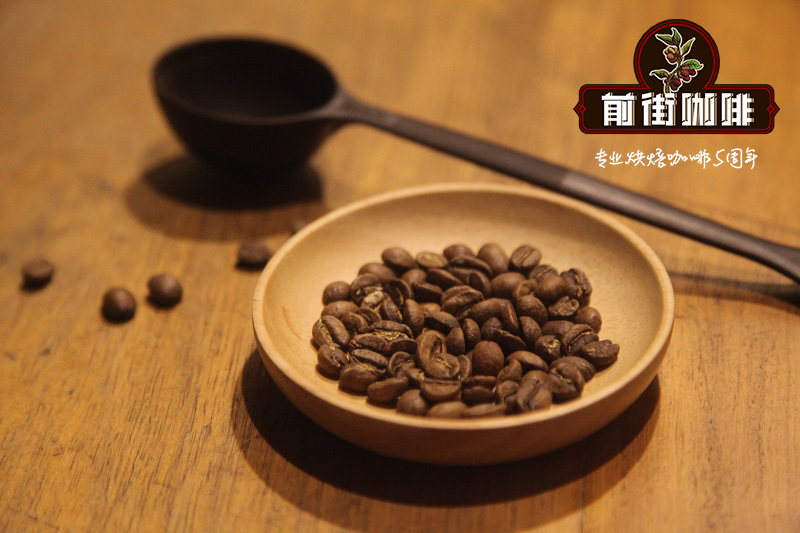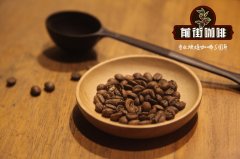Colombian washed Coffee Bean Flavor Colombian Rosa Flavor Flavor explosion

Professional coffee knowledge exchange more coffee bean information please follow the coffee workshop (Wechat official account cafe_style)
Qianjie-introduction to washing Rose Summer at the Grass Manor in Tomali, Colombia
Tolima Tolima is the third largest coffee producing region in Colombia, accounting for 12 percent of Colombia's annual coffee production. Coffee cultivation here dates back to the early 20th century, when iron pickups Typica, bourbon Bourbon and Kaddura Caturra were widely planted at low elevations.
Over the years, the region has witnessed the consequences of climate change and experienced coffee leaf rust and Broca disease, which has moved coffee production higher up the mountain, from 1600 to 2000 metres above sea level. Climate change has also prompted producers to switch to more rust-resistant Castile and Colombian varieties.
Tolima Tolima is located in west-central Colombia and is crossed by the north-south Andes (M. Andes) and the Cordillera (M. Cordillera). The famous Magdalena River Magdalena River passes through these two famous mountain systems.
The high-altitude mountain terrain and the tropical microclimate at low latitudes undoubtedly provide unique geographical conditions for the growth of coffee here. More important is the efforts made by the growers themselves to protect biodiversity and sustainable land development.
Coffee farms in Colombia are mostly organic, and coffee farmers rarely use pesticides and other drugs. And producers try to remove all fallen cherries throughout the harvest and regularly monitor their trees for signs of infection. Many families grow coffee and other crops, such as yucca, oranges and avocados. It not only increases their income for a year, but also creates a natural shadow for coffee and provides enough nutrition for the soil.
The combination of climate and unique natural characteristics, such as alpine tundra ecosystem, mineral-rich soil, volcanic ash and wetlands, have a positive impact on coffee production.
The cultivation and promotion of specialty coffee in the region and the shift of growers to more controllable fermentation methods and experimental processing have earned the quality of Tolima coffee recognition in the international market.
Washing Rose Summer at the Grass Manor in Tomali, Colombia
Producing area: Tolima
Variety: Rose summer
Altitude: 1600m
Treatment: washing
Flavor: clean on the palate with lemon acidity, explosive fruit aromas and a hint of honey in the finish.
In short: Qianjie is a coffee research hall, happy to share the knowledge about coffee with you, we share unreservedly just to make more friends fall in love with coffee, and there will be three low-discount coffee activities every month. The reason is that Qianjie wants to make more friends drink the best coffee at the lowest price, which has been Qianjie's tenet for 6 years!
END
Important Notice :
前街咖啡 FrontStreet Coffee has moved to new addredd:
FrontStreet Coffee Address: 315,Donghua East Road,GuangZhou
Tel:020 38364473
- Prev

Costa Rican Rose Summer Coffee recommends Costa Rican Goddess Rose Summer Coffee with fresh and pleasant flavor
Professional coffee knowledge exchange more coffee bean information please follow the coffee workshop (Wechat official account cafe_style) front street-Costa Rican goddess Manor Rose Summer introduction Costa Rica among the many excellent producing areas in Costa Rica there is an outstanding famous producing area Tarrazu, also known as Tarasu. Tarazhu is very famous in the world of boutique coffee. At the 2014 COE contest
- Next

Coffee in the Andean province of Cauca. Colombian love elixir. Combination of nuts and fruits.
Professional coffee knowledge exchange more coffee bean information please follow the coffee workshop (Wechat official account cafe_style) front street-Colombia San Tuareo Manor Love elixir introduction over the years in Colombia's boutique coffee farm, San Tuareo Manor has been a leader in industry technology and planting methods, the soul of which is the manor owner Camilo (Camilo Mer)
Related
- Beginners will see the "Coffee pull flower" guide!
- What is the difference between ice blog purified milk and ordinary milk coffee?
- Why is the Philippines the largest producer of crops in Liberia?
- For coffee extraction, should the fine powder be retained?
- How does extracted espresso fill pressed powder? How much strength does it take to press the powder?
- How to make jasmine cold extract coffee? Is the jasmine + latte good?
- Will this little toy really make the coffee taste better? How does Lily Drip affect coffee extraction?
- Will the action of slapping the filter cup also affect coffee extraction?
- What's the difference between powder-to-water ratio and powder-to-liquid ratio?
- What is the Ethiopian local species? What does it have to do with Heirloom native species?

